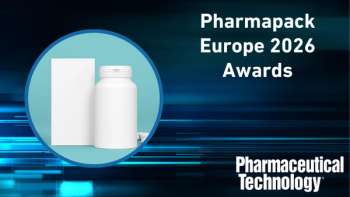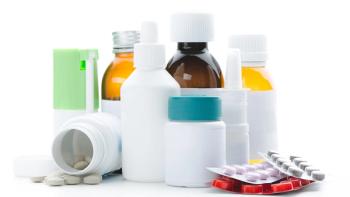
Pharmaceutical Technology Europe
- Pharmaceutical Technology Europe-11-01-2011
- Volume 23
- Issue 11
What's on the Box?
Counterfeiting continues to be a huge challenge affecting both branded and generic products, which, although a worldwide issue, is especially prominent in developing countries.
Counterfeiting continues to be a huge challenge affecting both branded and generic products, which, although a worldwide issue, is especially prominent in developing countries; some reports suggest that 80% of counterfeit products are now coming out of China. Regulatory authorities are already working hard to address these issues, and as soon as authorities find counterfeit medicines, they are destroyed. Some counterfeit packs may have packaging features that state "genuine product" or even have a hologram, regardless of whether or not this appears on the original product. Though the introduction of the Falsified Medicines Directive (FMD) in Europe aims to prevent falsified medicines from reaching patients, this won't help those who continue to self diagnose and source their own drugs via the internet, where there is currently little control.
Steve Kemp
In terms of technology, although 2D data matrix and serialisation codes are both gaining momentum, it may be the case that we need a combination of approaches to fully safeguard the pharma supply chain in the future. This is a constantly evolving situation and one that we are monitoring closely. Brecon complies with what our clients wish to provide to their customers; we follow their guidelines and work in partnership with them to provide the most effective anti-counterfeiting solution. Common technologies employed are 2D data matrices, serialisation and covert or overt package features that are embedded into the graphic artwork, for example the use of micro text and micro characters that cannot be seen by the naked eye.
Packaging can play an important role in the war against counterfeit medicines and it follows the old saying that "prevention is better than cure". So pharmaceutical packaging should offer features that both protect the product before it reaches the end user, as well as deterring counterfeiting. Unfortunately, forgers will always find a way to copy, which is the constant battle facing the industry. The Burgopak, for example, and our new AndersonBrecon compliance packs (IntuiDose) go a long way to deter counterfeiting because they are patented, so we know which products are packed in this format. Additionally, the equipment used is typically bespoke and not easy to replicate economically, which acts as another deterrent.
Packaging design needs to be combined with ever-greater lines of traceability through the inclusion of effective coding and marking, whether that be the use of 2D data matrix codes, QR codes, or linear/numerical codes. In the US, for example, the approach to track and trace appears to favour a 'chain of provenance,' whereby drugs can be traced from manufacturer to distributor to retailer and patient. In Europe, under the new FMD, unique and random product coding will enable a drug to be authenticated by the manufacturer.
The severity of the counterfeiting trade means that industry and regulatory bodies are investing constantly to introduce new ways to address counterfeiting. I'm sure that sometime in the future, there will be a more universal approach. However, in the meantime, with the introduction of the EU's Falsified Medicines Directive, which will need to be addressed by 2013, we are already seeing the foundations of a future unified approach across Europe.
There is also one final question to consider. Has the decision by some pharmaceutical companies to take their production overseas helped to fuel the opportunity for counterfeiting? In my opinion, by retaining manufacturing in the UK, for example, and distributing products internationally, we can retain containment and traceability. If manufacturing is moved to China or other low-cost producing countries, it may open up other channels and access to techniques that allow counterfeiting to be used with little trace. Is it time to re-consider where manufacturing should be conducted? After all, a company's reputation and brand protection could be at stake.
Steve Kemp is business development director at Brecon Pharmaceuticals.
Articles in this issue
over 14 years ago
Focus on Standardisation, Quality by Design and Regulatory GMPover 14 years ago
EFPIA for Greater Patient Safetyover 14 years ago
Jobs and Innovationover 14 years ago
Newsover 14 years ago
Under Continuous Considerationover 14 years ago
Threats and Opportunities in Cardiovascular Healthover 14 years ago
Applying Universal Anticounterfeiting Technologiesover 14 years ago
Europe Prepares To Battle The Counterfeitersover 14 years ago
Optical Character Recognition and Code Verificationover 14 years ago
Ensuring Compliance With Code ReadabilityNewsletter
Get the essential updates shaping the future of pharma manufacturing and compliance—subscribe today to Pharmaceutical Technology and never miss a breakthrough.




